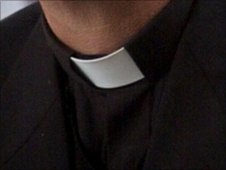This month I have been blessed to perform twice in York; once with my wonderful long-form improvisation comedy troupe, Fool(ish), and the other as a regular at the monthly Right Here Right Now at Friargate Theatre. In preparation for the Fool(ish) show Not Gonna Lie at York Theatre Royal we had an intensive run of weekly rehearsals which meant I had to drive across to York from my home in Bradford. These creative outlets/escapes from everyday life and ministry are an absolute lifeline to my wellbeing and I love the community that exists with my fellow performers.
I have also been reading Tony Blair’s new book, On Leadership, and I have found myself drawn to his concept of a leader’s ‘hinterland’. Blair suggests that behind every great leader is a rich personal depth, a hinterland filled with passions, interests, and creative pursuits that feed their inner life. It’s a reminder that leadership isn’t just about what you do on the public stage; it’s about who you are behind the scenes, the broader life you cultivate outside the demands of your role. This interaction between the public performance and the private ‘rehearsal’ space has meant I have been reinvestigating my own leadership and drawing learning from my knowledge and experience of improvisation.
Improvisation, at its core, revolves around trust and generosity. On stage, without a script, the story is built through the free and generous exchange of offers—gifts between performers. This demands immense trust in your fellow actors to receive and build on what you offer, rather than rejecting or blocking it. In improvisation, accepting offers leads to a process of reimagination, where the unexpected becomes an opportunity to explore new narratives and ideas. Therefore, before going public on stage, groups must build that trust between performers. Without this the performances are stale and hard work. If you manage to build it, however, you experience the magic of co-creating ideas from nothing. In leadership, this same principle applies.
Generosity, in both performance and leadership, is about giving space to others; to let them contribute, fail, and grow. In Fool(ish) Improvisation, we practice a collaborative approach, not just in shows but also in how we run the company. Decisions about publicity, communication, and rehearsals are shared responsibilities. Although Paul Birch and I started Fool(ish), everyone’s contributions are equally valued, and we rely on each other to bring their best. Paul and I always hoped to build this culture of sacrificial generosity. We’re so glad to experience it and we know it is not easily built nor easily maintained, but it’s the heart of what we do.
At Bradford Cathedral, we are navigating a period of uncertainty and change, where trust can feel fragile. Financial pressures and organisational transitions have left people understandably cautious. In this context, rather than leaning into this improvisational spirit, embracing the unknown and trusting the process, I have found myself trying to control the narrative, inadvertently stifling the creativity and contributions of those around me. This instinct stems from a desire to ensure that everything runs smoothly, but it undermines the very principles of generosity and collaboration that I value. In my attempt to make a good public performance I have neglected the essential rehearsal process.
This has become a learning point for me. Blair’s hinterland concept challenges me to reconnect with my deeper self and rediscover my improvisational and ‘kenotic’ leadership style: one that embodies generosity and humility. Kenosis, the theological concept of self-emptying, invites me, as a leader, to prioritise the needs and voices of others, allowing space for their contributions to flourish. In the same way that kenosis calls for a letting go of one’s own control, improvisation requires a performer to relinquish their need to dictate the outcome. Instead, the focus shifts toward co-creating a shared experience, trusting others to contribute, fail, and grow.
In improvisation, the most powerful moments come when you step back, allowing others to take the spotlight, and trust that their offers will move the scene forward. This self-emptying, this kenotic release, is not passive but actively generous, making space for the unknown to emerge. In leadership, the same principle applies: a kenotic leader, much like an improviser, seeks not to dominate but to empower others. This mindset of releasing control, whether on stage or in community, fosters an environment where collective creativity can thrive.
In both improvisation and leadership, kenosis demands vulnerability. By prioritising the success of others over your own needs, you create the conditions for something greater to emerge, whether it’s a compelling improvisational scene or a thriving community. The leader, like the improviser, is called to a posture of generosity, making space for the voices around them to shape the collective narrative.
A hinterland is not just about reminding the leader that there is a life outside of their role; it also ensures they remain rooted in trusting relationships with people who interact with them out of role. A leader with these important, grounding, personal communities draws from their own reserves, giving to others who are hesitant the trust they have experienced in their hinterland. This requires patience and courage. It is not just about expecting people to meet us halfway; it’s about leading from a place of abundance. When we cultivate our own personal depth—our hinterland—through passions, creativity, and reflective practice, we can give without expecting immediate reciprocity.
In both theatre and ministry, trust and generosity are foundational to building a strong community. Theologically, these concepts are grounded in grace—leading with an open heart, offering yourself and your leadership freely without demanding anything in return. Christ’s leadership, rooted in self-giving love, provides a profound model for leading through times of uncertainty. Even when his disciples doubted and faltered, Christ trusted them, allowing space for them to grow.
However, in today’s political landscape, we are witnessing an increase of polarisation and a pervasive sense of mistrust and, just as individuals in the political sphere feel disillusioned, the same sense of disenchantment can emerge when trust is fragile within our own circles. The erosion of trust, whether in politics or community leadership, undermines the foundations of collaboration and shared purpose.
In improvisation, when trust breaks down, we return to the principles of generosity and collaboration to rebuild the creative process. This same return to first principles is essential in leadership, whether navigating smaller communities or a broader social context. When political discourse becomes transactional rather than relational, and when leadership focuses on control rather than trust, we risk losing the very bonds that hold communities together. In this sense, improvisational practices offer a model for rebuilding societal cohesion: just as a scene is co-created through shared trust on stage, so too must we foster collaboration and openness in leadership, both in our communities and beyond.
The creative space of theatre, like the one I find in Fool(ish) and Right Here Right Now, offers a counter-narrative to this political disillusionment. In our life together both the private rehearsals and the public performances, we seek to model a different way of being together; where ideas are shared generously, where vulnerability is celebrated, and where each person’s contribution is lovingly handled and grown. This stands in stark contrast to the often adversarial nature of contemporary political and social dialogue. By embodying these principles of trust and generosity, we not only enhance our performances but also create a microcosm of what is possible in the wider world.
An improvisational approach to leadership at Bradford Cathedral could significantly influence our communal life and contribute positively to our broader social context. By fostering an environment where creativity thrives and every voice, generously offered, is heard within a trusting community, we could encourage collaboration within our community. This will help us navigate the uncertainties we face, inviting others to take part in co-creating solutions rather than merely following directives.
This spirit of reimagination underpins a new series of events, Re:Imagine, at Bradford Cathedral. These events are designed to ignite our collective imagination and envision a different future for our community, drawing on the rich entrepreneurial spirit that has shaped our beautiful city. Each event will be unique, but they will share a commitment to fostering creativity, innovation, and collaboration—principles deeply rooted in the practices of improvisation.
By intentionally integrating improvisational principles into Re:Imagine, we aim to create a collaborative atmosphere where participants feel empowered to share their ideas freely, knowing that their contributions will be valued. Just as in improvisation, where every performer’s input shapes the narrative, these events will prioritize the process of co-creation, encouraging attendees to build upon one another’s contributions without the fear of rejection. Each session will begin with open-ended prompts that invite participants to explore topics from multiple perspectives, mirroring the improvisational practice of “yes, and…” a technique that fosters a culture of acceptance and expansion. In this way, we hope to cultivate an environment where trust can flourish, allowing diverse voices to be heard and new ideas to emerge organically. I have been experimenting with this improvisational approach since starting at the cathedral. You can read about it here and, in more explicitly ways in my published article, “Improvisation As Intercultural Practice“
I’ve come to realise that the principles of trust, generosity, and collaboration are essential practices for me and can transform communities and society in general. Reflecting on my experiences in both improvisation and ministry, I recognise the importance of my hinterland, not just how it helps me to lead effectively but also how it roots me in a community that nurtures creativity and trust. I’m learning again to lean into my hinterland: a place of curiosity, joy and silliness where my people, foolish people, ground me, trust me and are abundantly generous to me. My visits to this place remind me of the person and leader I want to be. I hope to be a patient, trusting, and generous leader, believing that together, my community can co-create, out of nothing, something greater than any one of us could achieve alone. I want to encourage my colleagues to join me in cultivating an environment where every voice is heard and valued, where we can co-create a future filled with possibility. Though we face uncertainties, I am hopeful that by embracing an improvisational approach to leadership, we can navigate these challenges together and create a vibrant, trusting community. Ultimately, my commitment to embodying trust and generosity is not just about my role as a leader; it is about fostering a culture where creativity can flourish, and where together, we can craft narratives that reflect the richness of our shared experiences.





 Cassock Alb: Is a white garment that goes over clothes. This symbolises a clothing of the wearer in heavenly glory. This is about identifying the role of the leader of worship and not the person wearing it. The leader of worship is an expression of the character of the whole company of worshippers; they are to be the spokesperson of the collective voice of the congregation. By draping them in white it is a draping of all the people in that resurrection glory.
Cassock Alb: Is a white garment that goes over clothes. This symbolises a clothing of the wearer in heavenly glory. This is about identifying the role of the leader of worship and not the person wearing it. The leader of worship is an expression of the character of the whole company of worshippers; they are to be the spokesperson of the collective voice of the congregation. By draping them in white it is a draping of all the people in that resurrection glory.

 Cassock: Is a black garment similar to that of the Cassock Alb. At the reformation the Cassock Alb was seen as a symbolism of the abuses of clericalism where the clergy and those ordained were seen as being elevated beyond the reach of the laity. The reformers were keen to bring the work of the Church to the people and so they removed the symbolism. This reformation was focussed on the words used in the Church, hence the translation of the Bible into the common tongue. The reformation replaced the priest with the scholar, those who could read and interpret the Scriptures and the Cassock hints at the origins of being like the university gowns or the preaching monks (of which Calvin and Luther were).
Cassock: Is a black garment similar to that of the Cassock Alb. At the reformation the Cassock Alb was seen as a symbolism of the abuses of clericalism where the clergy and those ordained were seen as being elevated beyond the reach of the laity. The reformers were keen to bring the work of the Church to the people and so they removed the symbolism. This reformation was focussed on the words used in the Church, hence the translation of the Bible into the common tongue. The reformation replaced the priest with the scholar, those who could read and interpret the Scriptures and the Cassock hints at the origins of being like the university gowns or the preaching monks (of which Calvin and Luther were).
